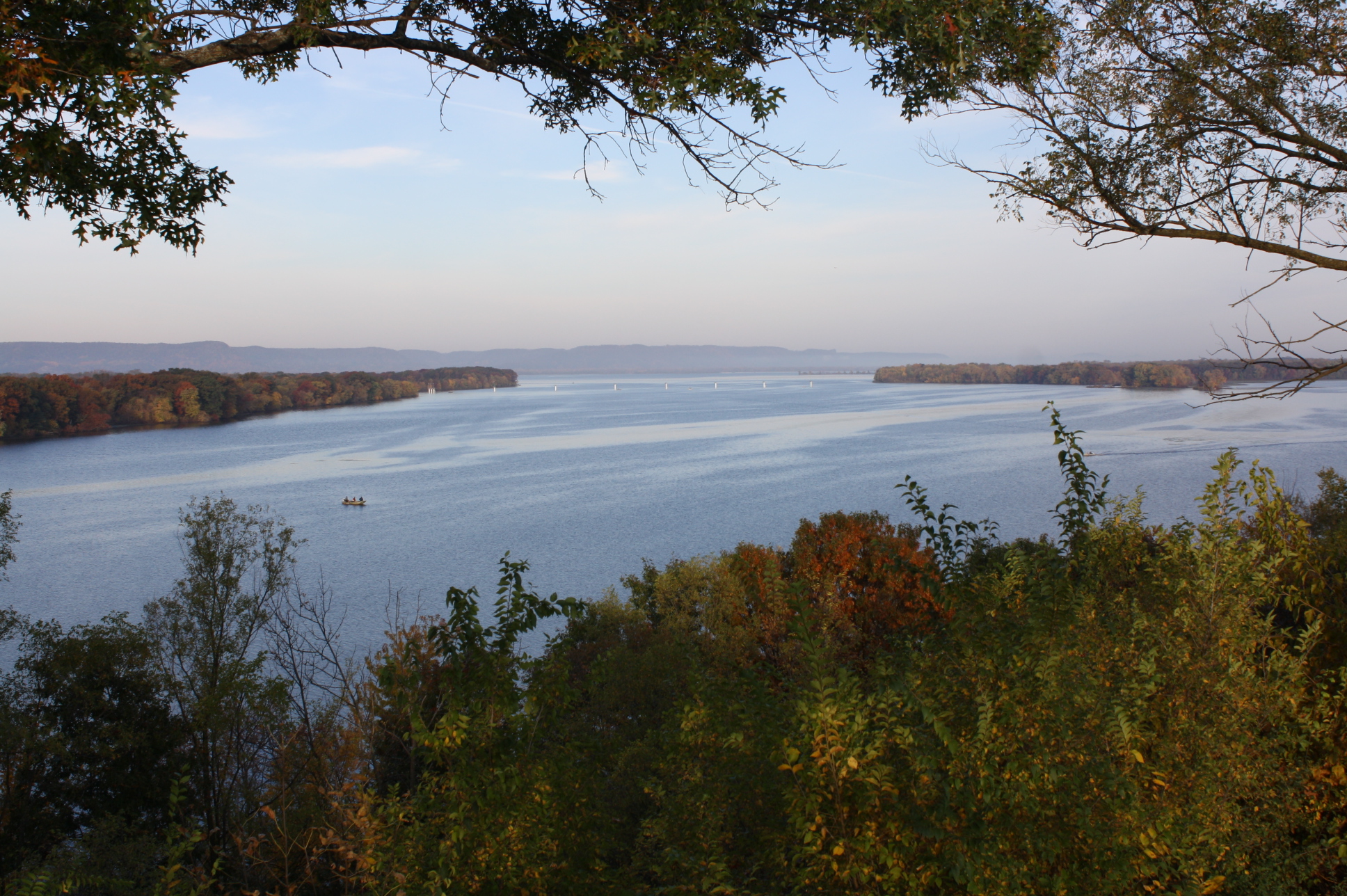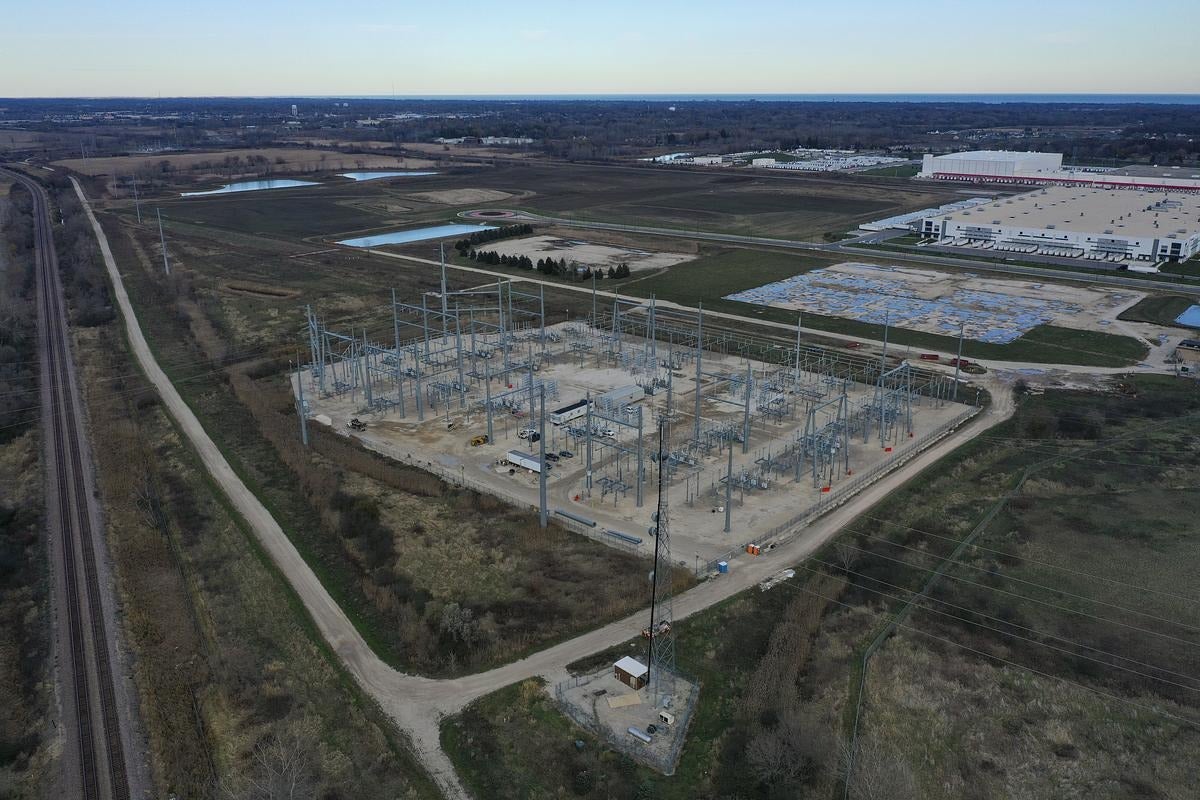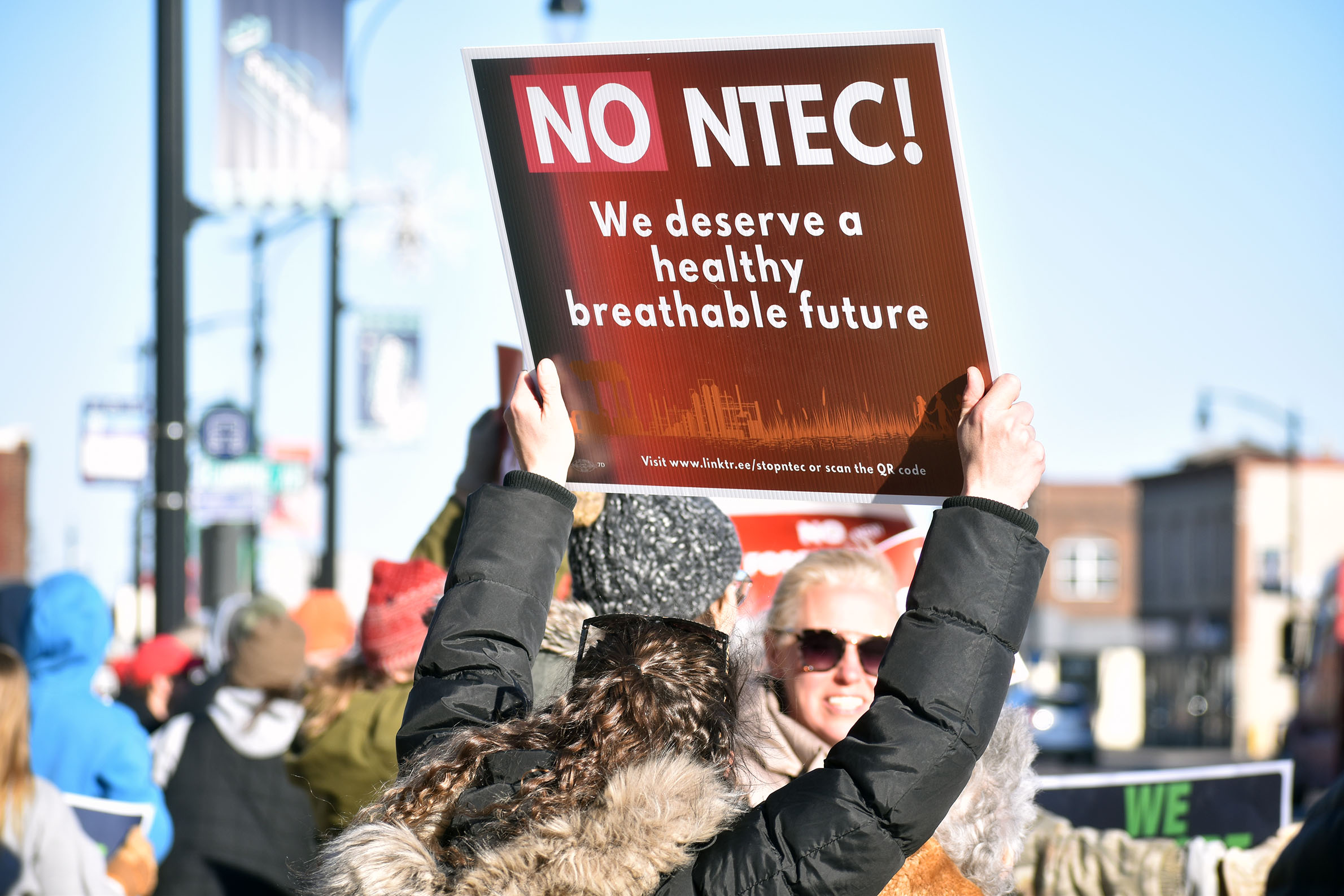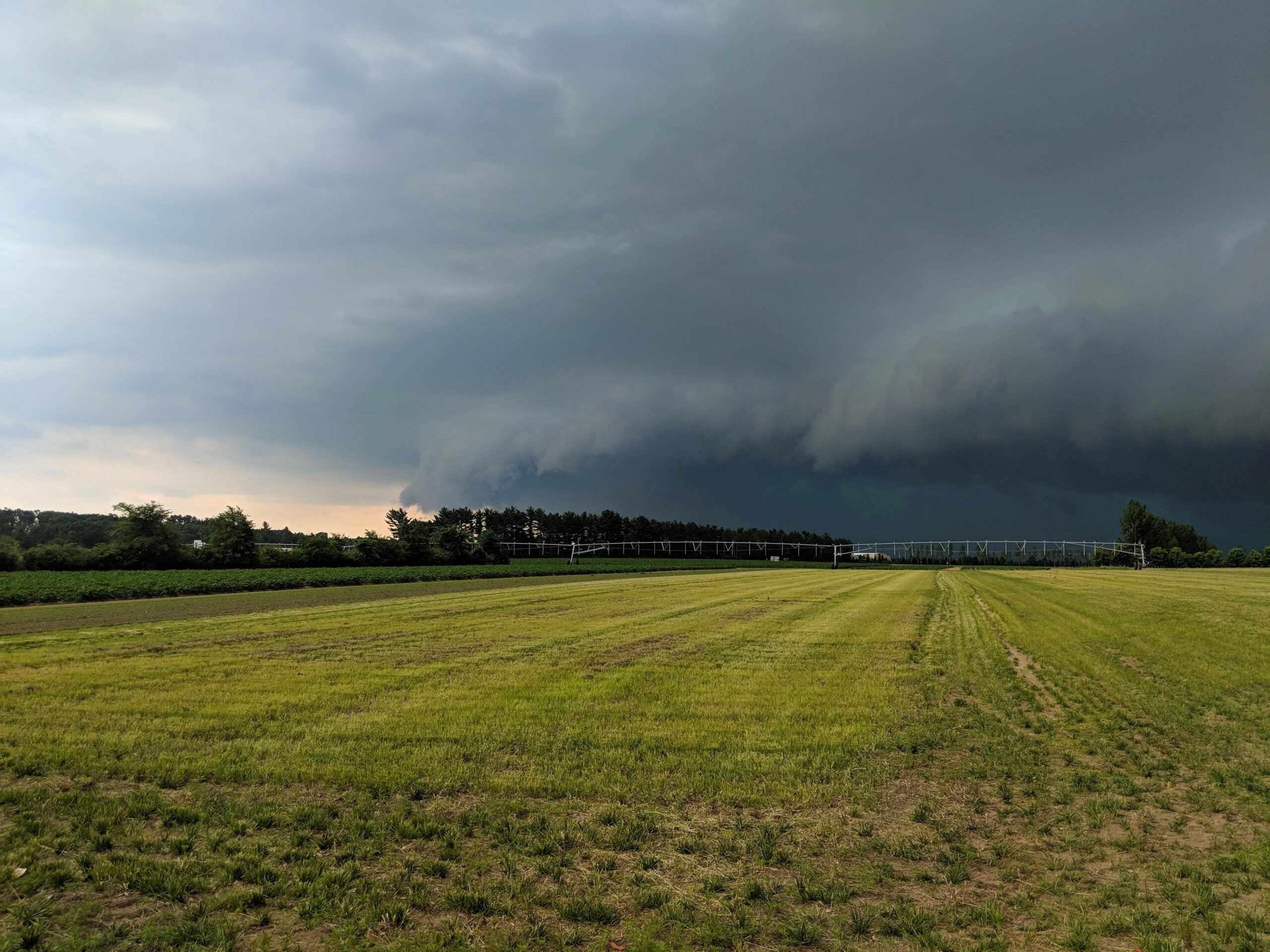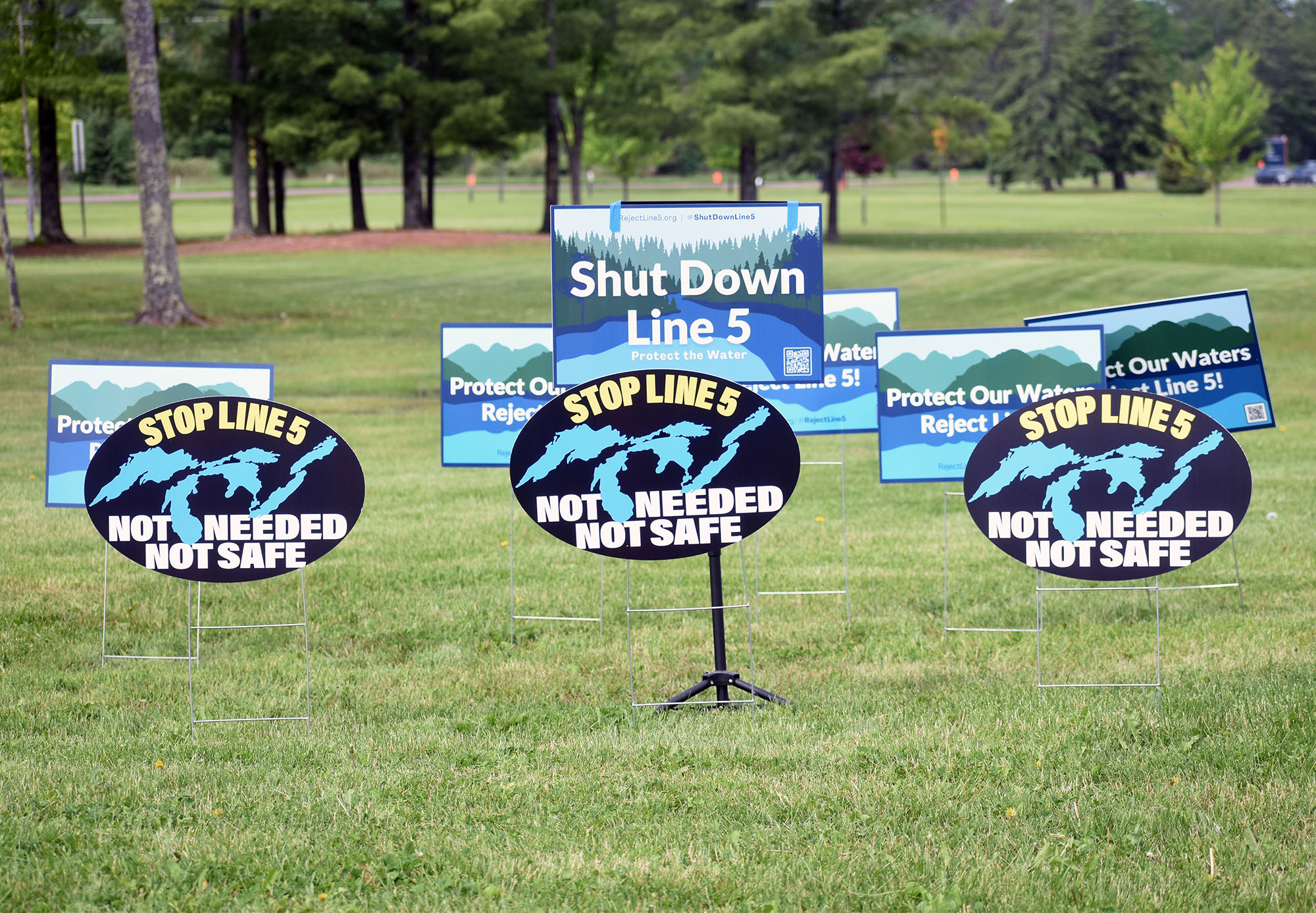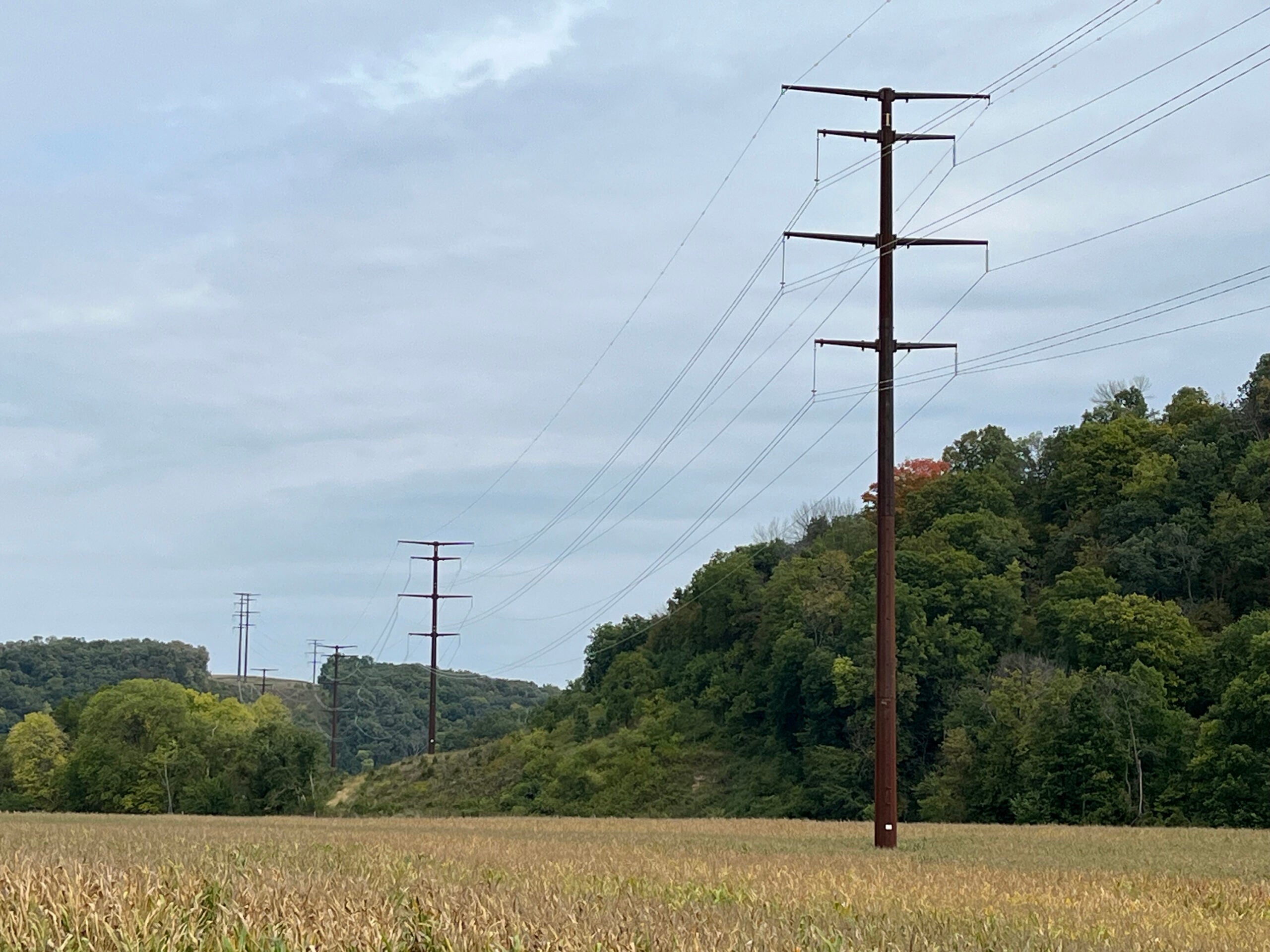Stress dissolves when Dena Kurt is out on the water. She paddles on the Mississippi River around 15 hours a week, but she might be on the river twice as long while training for marathon canoe races.
“My favorite times to paddle are early in the morning or in the evening when the wildlife is beginning to move either to bed or to come out to play,” said Kurt.
The Grant County resident paddles the river from near Galena, Illinois, to as far north as Wyalusing, gliding through the Upper Mississippi River National Wildlife and Fish Refuge. In the shallow backwaters of the refuge, Kurt said she feels like she’s a million miles away.
News with a little more humanity
WPR’s “Wisconsin Today” newsletter keeps you connected to the state you love without feeling overwhelmed. No paywall. No agenda. No corporate filter.
The federal wildlife refuge is a haven not only for her, but for fish, wildlife and migratory birds that use it as their breeding grounds within the Mississippi Flyway. Millions of birds fly through the refuge, and it’s the only stopping point left for many migratory birds.
Kurt said she fears they, along with other rare and endangered species, are at risk if several utilities are allowed to build its $492 million Cardinal-Hickory Creek transmission line through the refuge.
“I don’t go out on the river to look at high-voltage transmission lines. I don’t go out on the river to listen to them hum,” said Kurt. “I go out on the river to find wildness. I go out on the river to get away from all our manmade constructs, and it’s becoming harder and harder and harder to do that.”
Work begins as judge temporarily bars construction in federal waters
Last Monday, American Transmission Co., ITC Midwest and Dairyland Power Cooperative, the project’s co-owners, announced they were beginning work on the eastern segment of the 345-kilovolt power line in Dane County. The line would stretch from there for 102 miles to Dubuque County in Iowa. The project’s owners say it will help connect renewable energy to the regional power grid, support carbon reduction goals and relieve congestion on the system.
The transmission line is the target of multiple legal challenges in state and federal court brought by the Driftless Area Land Conservancy and Wisconsin Wildlife Federation. Opponents say the project, with its nearly 20-story tall towers, threaten farms, rural communities, the refuge and the scenic landscape of the Driftless Area in southern Wisconsin.
The groups are questioning state and federal approval of the project. They argue construction must be stopped to avoid environmental damage that can’t be undone once work begins.
On the same day that utilities began work, U.S. District Judge William Conley granted a preliminary injunction to prevent construction in and around federal waters, agreeing that environmental groups are likely to suffer “irreparable” environmental harm.
The judge’s ruling should prompt ATC and other co-owners of the project to pause its plans and review the overall project, according to Howard Learner, lead attorney representing the groups and executive director of the Environmental Law and Policy Center.
“Let’s see if there’s some better alternatives here in order to achieve the clean energy results that the public wants and do it in a way that doesn’t have so much environmental damage and saves money for consumers,” said Learner.
The project’s owners said in a statement that they’re disappointed with the judge’s order, but they note it only impacts about 15 acres of federal waters along the Wisconsin portion of the project.
“So, therefore, and meanwhile, the utilities can continue project construction in Wisconsin within these areas that are not affected by a preliminary injunction,” said Alissa Braatz, spokesperson for the project’s co-owners.
Braatz argues the line is needed as 114 projects that include 17 gigawatts of renewable energy generation rely on it to transmit power to millions of homes as part of the clean energy transition. Residents like Kurt and environmental groups would like to see the project’s owners examine other alternatives like rooftop solar and battery storage.
Officials with RENEW Wisconsin said they believe the transmission line is necessary for Wisconsin to reach its goal of consuming carbon-free electricity by 2050. Michael Vickerman, policy director for RENEW, said there’s no one silver bullet to help the state transition to clean energy. He noted that 60 percent of all renewable generation serving Wisconsin electric providers currently comes from out of state.
“We will need many, many different approaches, strategies for approaching the net-zero goals of 2050, but Cardinal-Hickory Creek and transmission upgrades in general are a strategy that we can ill afford to do without,” said Vickerman.
But, project opponents are continuing to fight in state court to stop construction of the line elsewhere in Wisconsin.
Opponents fight $32M bond requirement in state court case
In a state court case, Dane County Circuit Court Judge Jacob Frost recently granted a temporary injunction to halt work on the line if groups could post a $32 million bond to pay for project delays as part of a requirement under state law.
Learner said they’ve asked the judge to reconsider the bond amount, noting his clients can’t afford it. He maintains the requirement to put up millions of dollars also violates his clients’ rights under the U.S. and state constitutions.
“The judges found we’re likely to succeed on the merits … but unless you can post a $32 million bond, then they get to do what they want to do anyway, and that’s not right,” said Learner. “That’s not constitutional.”
Attorneys for the Environmental Law and Policy Center have sent a letter notifying Wisconsin Attorney General Josh Kaul of the groups’ constitutional challenge, saying the case raises questions about access to justice. They’re urging Kaul to make it clear to Frost that the requirement of a $32 million bond violates federal and Wisconsin constitutional law.
Braatz argues the project’s co-owners can move forward with construction unless the groups post the $32 million bond, adding an injunction would mean further delays and costs.
“It would postpone the central project benefits to electric consumers and ultimately add some unnecessary costs to the capital project, which ultimately do get passed down to energy consumers,” said Braatz.
Wisconsin ratepayers are already set to pay around $67 million of the total project costs, and utilities estimate a 60-day injunction along the entire route in Wisconsin would add another $12.7 million to the overall total.
Tom Content, executive director of the Citizens Utility Board, said they have concerns about the bond requirement in state court, noting it could impact customers’ ability to challenge utilities’ activities in future cases. He would also like to see a resolution on whether the project can move forward.
“So there isn’t a concern that customer dollars are spent for no reason,” said Content.
Will the line move forward or will it be stopped?
Federal and state judges have held that environmental groups could succeed on the merits of the cases brought against the Public Service Commission, the U.S. Army Corps of Engineers and other federal agencies.
The case before Frost specifically challenges the project’s authorization by the Public Service Commission of Wisconsin, claiming that two members of the commission should have recused themselves due to a perceived conflict of interest.
PSC Chair Rebecca Cameron Valcq had previously worked as an attorney for a law firm representing We Energies whose parent company, WEC Energy Group, owns about 60 percent of ATC. At the time of the decision, Huebsch served as an advisory committee member for the Midcontinent Independent System Operator (MISO), which operates the regional electric grid and supports the project. Both have maintained they were not biased in their review of the project.
The court will hear arguments about the merits of the agency’s approval of the project on Nov. 19, but the court will not take up any claims of bias.
The Wisconsin Supreme Court has agreed to hear whether Huebsch’s relationships with utility employees qualifies as a conflict of interest that could invalidate the PSC’s approval of the project. The line’s owners revealed Huebsch sent encrypted messages to an ATC employee and a former independent contractor for ITC in June. They asked the PSC if they could refile an application for the project, but regulators haven’t acted on their request.
In the federal case, groups are alleging several agencies violated federal law in authorizing the line. They say the Army Corps violated the National Environmental Policy Act by granting a general permit because the agency failed to examine other alternatives to reduce environmental impacts.
Conley found the groups may have “some likelihood of success” because there’s no evidence that shows the Corps analyzed whether the project had cumulative environmental effects that were “no more than minimal.” The judge also questioned whether the project qualified for a general permit.
A ruling in the federal case is expected within the next 30 to 60 days, and the injunction will remain in effect until then.
Editor’s note: American Transmission Company is an underwriter of Wisconsin Public Radio.
Wisconsin Public Radio, © Copyright 2026, Board of Regents of the University of Wisconsin System and Wisconsin Educational Communications Board.

